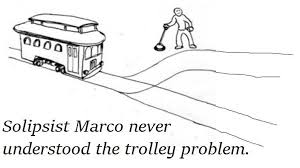It’s pretty simple, actually. A village somewhere in Europe that is completely in the shade all day for part of the year has already proven it.
Mirrors.
We just need a ring of motorized mirrors around the Earth.
At hour 0, the mirrors will rotate to show sun all across the entire Earth.
At hour 12, the mirrors will rotate to put all of the Earth into night time.
That lets the entire Earth have the exact same synchronized time synchronized with the daylight.
The mirrors will block the sun from parts of the earth facing during the night.
The mirrors will constantly be rotating to keep the proper amount of sun light facing each part of Earth as the Earth rotates.
The mirrors will be solar powered.
This will fix it, right?
I don’t see any way whatsoever that could mean this project is not viable.
deleted by creator
There have been several concepts drawn up about using space mirrors as a way to focus the light from the sun into a deathray
deleted by creator
I got that reference! Surprised to see it out in the wild.
Alternatively, we have this arbitrary standard of 9am means morning, if we share a single universal time, different places would just have a different arbitrary time being the “morning” instead.
We could keep the 0 hour as the “middle” of the night and 12 being the “middle” of the day (though I’m not sure if that’s really the sun’s high spot for the day for any places).
But with fully controlled mirrors, we could make it exactly 12 hours, so we could just then switch to the 0 hour being when the sun comes up.
i would aruge that the arbitrary factor of “9am being morning” is entirely to do with the fact that morning is actually a solar time phenomenon, whereas global time does not have the concept of morning, since it is merely imitating the local solar time.
Local solar time being the literal point in the sky that the sun is in.
It gets even funnier if we include people who aren’t “normal” I for one, consider noon to be morning.
Or, we could collectively realize time is but an illusion and transcend this silly problem.
Lunchtime, doubly so!
Time is a cube, and always will be.
Dave!?
Now I’m thinking about an ex-programmer supervillain who does this as her big foray into supervillainy
No, we should
educate all devs and fix all broken time API’s,…wait, your solution seems far easier.
Sounds feasible.
Na let’s keep timezones, there useful for humans who generally want time to mean something, but lets ditch daylight savings time, all it does is make scheduling a massive pain twice a year, and messes up everyone’s sleep cycle. Without it, timezones would just be a fixed offset from another, minimizing trouble.
My suggestion has always been universal sidereal time. It is singular, doesn’t change, and carries no colonial baggage since it rotates around the whole earth. Even suitable as a home time if we become spacefaring.
doesn’t change
Citation needed.
Do you use leap seconds to stay in sync with earth’s rotation? When would they be applied? How would spacefarers be notified of these updates?
Also, what meridian do you choose for this ‘universal’ time? Is it still Greenwich? Because that’s peak colonial baggage.
I meant doesn’t change with respect to time zones. Leap times are still relevant in that scenario as each solar rotation doesn’t divide into a whole number of days and leap seconds due to variance in rotation.
With respect to the meridian I envision it rotating around the earth once per year, hence sidereal. So 0000 would rotate around the earth through the course of the year. Each day it would be one degree farther.
Most likely is I’m just completely full of shit.
peak colonial baggage
I get the thought, but wouldn’t changing it just end up performative?
I think changing the date system from AD/BC to CE/BCE is peak performative, and that’s coming from me as an atheist. We still use the same years based on the mistaken belief of when the Christ was born.
Where would we change UTC to be? Best place I could think of is where the current International date line is in the middle of the Pacific but that area is already a clusterfuck of zig zagging not that current UTC 0 is much better. And then, what do we call it? Do we keep UTC because it was a compromise between English and French speakers? Should we go with Mandarin Chinese since that is the most widely spoken language natively in the world? But there is plenty of colonialism within Chinese history of the Han people versus all other Chinese ethnicities and languages. Or English because it is the most widely spoken language when adding first and additionally spoken languages (definitely colonialism there)?
I’d sincerely love to know your thoughts on this. I’ve pondered it before and couldn’t come up with a good change besides using an artificially made language like Esperanto but that comes with a whole host of other issues.
wouldn’t changing it just end up performative
Exactly. Sidereal time does get rid of time zones and leap years, but it’s still referenced to a single physical object and relies on a arbitrary choice of start point. So it doesn’t create some perfect cosmic time standard.
The international date line doesn’t help since that’s just 180° offset from Greenwich itself.
The point of standards is that they can be followed by everyone. The AD/BC epoch is fine. The Greenwich meridian is fine. UTC is fine. Changing them would cause so much disruption that it cannot be worth it.
Daylight savings can go die in a ditch though.
“Daylight savings biting curb at 4k” as the kids would say.
fr i keep saying this and nobody seems to think it’s a good idea.
Fuck timezones, me and my homies operate on UTC.
Ive been using utc personally for over a year and i use it in context of vrchat since it yields one less necessary conversion to other people’s timezones because only the offset is needed (as opposed to memorizing both offsets, which is much harder because of that nasty nasty daylight savings and its weird anomalies) but they still hate it and tell me to use a “normal” timezone lol. I had gotten 1 person to switch. And she since switched back. Shit don’t work in practicality but I’m still gonna use it out of stubbornness
if i can’t have anything nice, you can’t have anything nice, and only the people who can’t have anything nice will have something nice >:)
Go play EVE Online. The servers used to have (still, do I think, but shorter) daily downtime that was scheduled using UTC and it led to everyone using UTC since the game server itself used that time.
There’s dozens of us! Yeah practically it’s almost entirely an aesthetic effect. I’ve kept it that way and haven’t had any problems from it, though.
UTC is timezone too. It has leap seconds. IAT is atomic time. It is perfect.
The title partially answers this.
https://www.timeanddate.com/time/gmt-utc-time.html
GMT is a time zone officially used in some European and African countries. The time can be displayed using both the 24-hour format (0 - 24) or the 12-hour format (1 - 12 am/pm).
UTC is not a time zone, but a time standard that is the basis for civil time and time zones worldwide. This means that no country or territory officially uses UTC as a local time.
No it doesn’t. “Time zones around the world are expressed using positive or negative offsets from UTC, as in the list of time zones by UTC offset.”
https://en.wikipedia.org/wiki/Coordinated_Universal_Time
Time now in UTC is 10:33, no matter where on the planet you are.
UTC is expressed using positive or negative offset from IAT
That doesn’t mean it’s a timezone
UTC has leap seconds to keep it aligned with earth’s rotation. Otherwise all timezones would slowly shift away from having any correlation with solar time. Between UTC and IAT, UTC is the more human-useable and thus better.
The post is about developers.
I’d fuck with atomic time, but at that point i want a perfect calendar system also.
I say we ditch this nonsense altogether and go back to vague descriptions of the Sun’s position in the sky.
Isn’t that UT0?
“many moons ago, when the sun was low in the sky…”
One of my favorite T-shirts. https://www.teepublic.com/t-shirt/23763923-utc-or-gtfo
(I am not affiliated in any way with this shop)
I don’t know what the hate is unless you are trying to store time as a String property. There a special place in hell for all developers who do this.
IMHO, all you really need to know is an Epoch time stamp and whether it’s localized to the viewer or the creator… Not that complex. The problem with time zones is that politicians keep changing them
Honestly, I’d rather give the creator of NULL a slap.
I’m probably going to get a lot of hate for this, and I do recognize there have been problems with it all over the place (my code too), but I like null. I don’t like how it fucks everything up. But from a data standpoint, how else are you going to treat uninitialized data, or data with no value? Some people might initialize an empty string, but to me that’s a valid value in some cases. Same for using -1 or zero for numbers. There are cases where those values are valid. It’s like using 1 for true, and zero for false.
Whomever came up with the null coalescing operator (??) and optional chaining (?->) are making strides with handling null more elegantly.
I’m more curious why JavaScript has both null and undefined, and of course NaN. Now THAT is fucked up. Make it make sense.
To offer a differing opinion, why is null helpful at all?
If you have data that may be empty, it’s better to explicitly represent that possibility with an
Optional<T>generic type. This makes the API more clear, and if implicit null isn’t allowed by the language, prevents someone from passing null where a value is expected.Or if it’s uninitialized, the data can be stored as
Partial<T>, where all the fields areOptional<U>. If the type system was nominal, it would ensure that the uninitialized or partially-initialized type can’t be accidentally used whereTis expected sincePartial<T>!=T. When the object is finally ready, have a function to convert it fromPartial<T>intoT.Ignoring the fact that a lot of languages, and database systems, do not support generics (but do already support null), you’ve just introduced a more complex type of null value; you’re simply slapping some lipstick on it. 😊
In a discussion about whether null should exist at all, and what might be better, saying that Optional values aren’t available in languages with type systems that haven’t moved on since the 1960s isn’t a strong point in my view.
The key point is that if your type system genuinely knows reliably whether something has a value or not, then your compiler can prevent every single runtime null exception from occurring by making sure it’s handled at some stage and tracking it for you until it is.
The problem with null is that it is pervasive - any value can be null, and you can check for it and handle it, but other parts of your code can’t tell whether that value can or can’t be null. Tracking potential nulls is in the memory of the programmer instead of deduced by the compiler, and checking for nulls everywhere is tedious and slow, so no one does that. Hence null bugs are everywhere.
Tony Hoare, an otherwise brilliant computer scientist, called it his billion dollar mistake a decade or two ago.
Type-safe lipstick :)
What’s wrong with NULL? How else can you differentiate between not having a value and having a blank value?
The problem isn’t having empty values, it’s not tracking that in the type system, so the programmer and the compiler don’t have any information about whether a value can be null or not and the programmer has to figure it out by hand. In a complex program that’s essentially completely impossible. The innocently created bomb that causes your program to crash can be in absolutely any value.
There are ways to track it all by disallowing null and using optional values instead, but some folks would rather stick with type systems that haven’t moved on since the 1960s.
Worst is UTC vs IAT
OMG, I’m dealing with a developer right now that is dealing with patient collected samples in several timezones, allowing the patients to either enter the time they collected, or use current time, and storing it in UTC time.
We do not receive any timezone data, patient collection data is showing different days than the patient could write on their samples depending on the time of day, and the developer said ‘just subtract X hours’ (our timezone)… for which not all patients would live in.
I suppose I could, if they’d provide the patient’s timezone, but they don’t even collect that. Can you just admit your solution is bad? It’s fine to store a timestamp in UTC, but not user provided data… don’t expect average users to calculate their time (and date) in UTC please.
Depends on what’s collecting the information. If it’s a website, then the client-side code could most certainly normalize everything to UTC based on the browsers time zone before submitting. That’s what I would probably do, if the user’s time zone isn’t needed or wanted…
This is actually the best approach.
Obviously they are getting timezone information otherwise the app could only display whatever time the user entered in.
If you want to sort things by the actual time, it’s simple and performant if all of the times are in the same timezone, and UTC would be the standard one to use. Pushing the timezone calculations to the client makes sense because the UTC time is correct, it’s just a matter of displaying it in a user friendly way, ie. show the time in the user’s timezone.
The creator of DST gets the first slap. Then the timezones asshole.
I’m planning to do a presentation at work on how to deal with dates/times/timezones/conversion/etc in the next few weeks some time. I figure it would be a good topic to cover. I’m going to start my talk by saying “first, imagine there is no such thing as timezones or DST.” And then build on that.
What’s DST?
Edit: oh it means Daylights Savings Time
Dick sucking time
That’s the only time zone I’m for!
Sandford Fleming (the guy who invented time zones) actually made it easier.
Before timezones, every town had their own clock that defined the time for their town and was loosely set such that “noon is when the sun is at its highest point in the sky.” Which couldn’t be measured all that accurately.
If it wasn’t for Fleming, we’d be dealing with every city or town having a separate time zone.
Everyone complaining about timezones is truly missing the forests for the trees.
Save a slap for the dude who invented sundials, and another slap for the dude who invented civilization.
Save a slap for the dude who invented slaps!
No wonder they never invented time machines to get to the future, if we’re so keen on bullying them.
Some asshole had the idea to water a seed and now I have to pay taxes. Fuck that guy.
Is he cute?
Not any more. But some of the IRS guys are smokin’ hot, I’m sure, if that’s what you’re into.
This but unironically.
You might want to show them this video https://youtu.be/-5wpm-gesOY
Oh yeah, please do imagine there is no such thing as a time zone.
On an ellipsoid!
No, see, how it would work without timezones is:
- Everyone would use UTC and a 24-hour clock rather than AM/PM.
- If that means you eat breakfast at 1400 hours and go to bed around 400 hours and that the sun is directly overhead at 1700 hours (or something more random like 1737), fine. (Better than fine, actually!)
- Every area keeps track of what time of day daily events (like meals, when school starts or lets out, etc) happen. Though I think generally rounding to the nearest whole hour or, maybe in some cases, half hour makes the most sense. (And it’s not even like everyone in the same area keeps the same schedule as it is now.)
- You still call the period before when the sun is directly overhead “morning” and the period after “afternoon” and similarly with “evening”, “night”, “dawn”, “noon”, “midnight” etc.
- One caveat is that with this approach, the day-of-the-month change (when we switch from the 29th of the month to the 30th, for instance) happens at different times of the day (like, in the above example it would be close to 1900 hours) for different people. Oh well. People will get used to it. But I think it still makes the most sense to decide that the days of the week (“Monday”, “Tuesday”, etc) last from whatever time “midnight” is locally to the following midnight, again probably rounding to the nearest whole hour. (Now, you might be thinking "yeah, but that’s just timezones again. But consider those timezones. The way you’d figure out what day of the week it was would involve taking the longitude and rounding. Much simpler than having to keep a whole-ass database of all the data about all the different timezones. And it would only come into play when having to decide when the day of the week changes over.)
- Though, one more caveat. If you do that, then there has to be a longitudinal line where it’s always a different day of the week on one side than it is just on the other side. But that’s already the case today, so not really a drawback relative to what we have today.
No, take tHe NeW jErSeY approach. Keep the implementation simple.
Everyone, everywhere on UTC.
-
7:00 - Everyone wake up at
-
8:00 - Everyone go to school/work 8:00 AM
-
…
-
21:00 - Everyone sleep.
We’ll figure out the logistics as we go.
-
You still call the period before when the sun is directly overhead “morning” and the period after “afternoon” and similarly with “evening”, “night”, “dawn”, “noon”, “midnight” etc.
Note that the Sun position is not consistent throught the year and varies widely based on your latitude.
In Iceland (and also Alaska) you can have the Sun for a full 24 hours in the sky (they call it “midnight sun”) during Summer solstice (with extremelly short nights the whole summer) and the opposite happens in Winter, with long periods of night time.
I think it still makes the most sense to decide that the days of the week (“Monday”, “Tuesday”, etc) last from whatever time “midnight” is locally to the following midnight, again probably rounding to the nearest whole hour.
Just the days of the week? you mean that 2024-06-30 23:59 and 2024-07-01 00:01 can both be the same weekday and at the same time be different days? Would the definition of “day” be different based on whether you are talking about “day of the week” vs “universal day”?
Note that the Sun position is not consistent throught the year and varies widely based on your latitude.
Good call. The definitions of “noon” and “midnight” would need to be formalized a bit more, but given any line of longitude, the sun passes directly over that line of longitude “exactly” once every 24 hours. (I put “exactly” in quotes because even that isn’t quite exactly true, but we account for that kind of thing with leap seconds.) So you could base noon on something like “when the sun is directly over a point on such longitudinal line (and then round to the nearest hour).”
Could still be a little weird near the poles, but I think that definition would still be sensical. If you’re way up north, for instance, and you’re in the summer period when the sun never sets, you still just figure out your longitude and figure when the sun passes directly over some point on that longitudinal line.
Though in practice, I’d suspect the area right around the poles would pretty much just need to just decide on something and go with it so they don’t end up having to do calculations to figure out whether it’s “afternoon” or “morning” every time they move a few feet. Heh. (Not that a lot of folks spend a lot of time that close to the poles.) Maybe they’d just decide arbitrarily that the current day of the week and period of the day are whatever they currently are in Greenwich. Or maybe even abandon the use og day of the week and period of the day all together.
Just the days of the week? you mean that 2024-06-30 23:59 and 2024-07-01 00:01 can both be the same weekday and at the same time be different days? Would the definition of “day” be different based on whether you are talking about “day of the week” vs “universal day”?
Yup.
I’m just thinking about things like scheduling dentist appointments at my local dentist. I’d think it would be less confusing for ordinary local interactions like that if we could say “next Wednesday at 20:00” rather than having to keep track of the fact that depending what period of the day it is (relative to landmarks like “dinner time” or “midmorning”) it may be a different day of the week.
And it’s not like there aren’t awkward mismatches beteen days of the week and days of the month now. Months don’t always start on the first day of the week, for instance. (Hell. We don’t even agree on what the first day of the week is.) “Weeks” are an artifact of lunar calendars. (And, to be fair, so are months.)
(And while we’re on the topic of months, we should have 13 of 'em. 12 of length 30 each and one at the end of 5 days or on leap years 6 days. And they should be called “first month”, “second month”, “third month”, etc. None of this “for weird historical reasons, October is the 10th month, even though the prefix ‘oct’ would seem to indicate it should be the 8th” bs. Lol.)
regarding day change, you could also just have it change at UTC midnight and the entire planet bongs at that time if they’re awake.
Bank holidays would be really awkward. You start wort at 23 and the next day is off so you would just have to work that one hour.
Office workers could probably move hours around. It would get complicated for shift workers though. Paying overtime for work on holidays?
My experience is that you start work and the next day is off so you just lock the doors and keep working, but maybe there are financial institutions without backlogs idunno.
Yeah. I figured the day-of-the-month change should definitely happen at UTC midnight. I kindof like the idea that a day of the week lasts from before I wake up to after I go to sleep. (Or at least that there’s no changeover during business hours.)
But hell. If you wanted to run for president of the world on a platform of reforming date/time tracking but planned for the days of the week to change at midnight UTC, I’d still vote for you.
Save a slap for the leap seconds creator.
Start in utopia, then descend to hell.
Is this something that is going to be publicly available? If so, post a link when you have it.
DST people should get hung. By three balls. Fuck them.
Imagine, if we were just all on the same time. It’d just make things, a little easier.

All in the same time? But… Then the sun might go down at noon. That doesn’t make sense…
Wait… Noon? Noooon…
The word noon comes from a Latin root, nona hora, or “ninth hour.” In medieval times, noon fell at three PM, nine hours after a monk’s traditional rising hour of six o’clock in the morning. Over time, as noon came to be synonymous in English with midday, its timing changed to twelve PM.
Oh now that’s worse
We must establish a new order of monks, who all get up at 6am UTC. We can call them in sync
new order of monks
New Order of Monks, in short, NOOM
Just let go of all meaning. 2 PM can be in the middle of the night if you just let go.
Life, that is. It would just make life a little easier.
DST
The notifications in one of our systems is aligned with UTC because it needs to be for a whole bunch of background services to function. Periodically (every couple of years) someone raises a ticket to complain that the time of their notifications is an hour out, and the 2nd line support worker will think “well that’s easy, I’ll just change the server time to BST”. This then brings this whole suite of applications to a crashing halt as everything fails.
I would truthfully and happily go back in time and tell people not to waste with the fucked up bullshit technology of the past. I mean Angular 1, what the hell was that? Twitter integration? Fuck you 2010. Zend Framework? You should be hanged. HANGED.
I actually like DST
No you don’t, stop telling lies.
I do 👍
A lot of things that people like are bad and should not be public policy.
Some individuals feeling like they like DST doesn’t counteract its significant health detriments.
well that’s a domain
Sorry, I don’t know what you mean.

Just kinda silly
Oh, I see. Yeah I suppose it is, now that you point it out. It comes from:
- .gov: the US government
- .nih: the US National Institutes of Health
- .nlm: the National Library of Medicine
- .ncbi: the National Center for Biotechnology Information
But really, I only know it because it’s a very common host that comes up when you’re searching for published research papers. I just see “bunch of Ns .gov” and know it’s reliable.
Inagine going back hundreds of years to convince everybody in the world to use the same time. “No I know not everybody has a clock, but if you could consider sunrise midday that would make my job in the future much easier.”
The reason we have timezones is because of the railroads. Before the railroads came in, every town would have its own time, typically set so noon is the time when the sun is highest in the sky. This really wasn’t a problem, as back then it didn’t really matter that the time was different in every little burg.
Then the railroads came in. They needed things running on a coordinated time table out of necessity, and having every town with its own time was unworkable. I’m sure the railroads would have loved running everything off of the same clock everywhere because that would be simple. But people were too used to noon being the middle of the day, so instead we got the compromise of having timezones so that the railroads can still run on a coordinated time table, but also so that noon is still approximately the middle of the day as people were used to.
So the solution is just go back to the 1800’s and convince the railroads that timezones are actually silly and that they really should run everything based upon UTC. And if people want rail service to their town, they can just deal with not having 12PM being when the sun is highest in the sky.
Well, UTC didn’t exist in 1800, it would have been GMT, and that might not have been too popular so soon after the war of independence. Even if you convinced all of the USA to use one time zone for the railways, it would be different elsewhere and you’d still get time zones.
Maybe you’d get further with the project with the airlines in the first half of the twentieth century, but I’m not sure that that level of internationalism would have gone down well in a rather war torn world.
Is GMT and UTC not the same? I’m happy to not have to code for timezones
I fucking hate timezones. Whatever it is, I’d rather read the current clock as 4 a.m. even if it’s noon than have timezones.
Well you can. Just switch your clock to UTC and you’re done. You won’t even have DST to deal with.
I’m not a solipsist.

Only freaks have AM/PM in their time system.
24hr clock supremacy





















